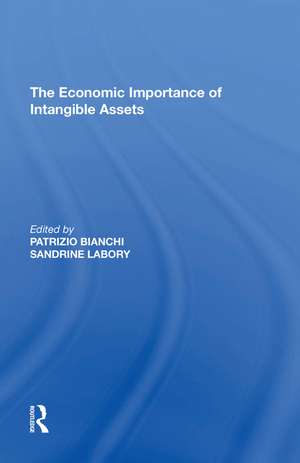The Economic Importance of Intangible Assets
Autor Patrizio Bianchien Limba Engleză Paperback – 18 sep 2018
Preț: 258.80 lei
Preț vechi: 318.35 lei
-19% Nou
Puncte Express: 388
Preț estimativ în valută:
49.52€ • 52.96$ • 41.29£
49.52€ • 52.96$ • 41.29£
Carte tipărită la comandă
Livrare economică 17 aprilie-01 mai
Preluare comenzi: 021 569.72.76
Specificații
ISBN-13: 9781138620933
ISBN-10: 1138620939
Pagini: 214
Dimensiuni: 152 x 235 mm
Greutate: 0.4 kg
Ediția:1
Editura: Taylor & Francis
Colecția Routledge
Locul publicării:Oxford, United Kingdom
ISBN-10: 1138620939
Pagini: 214
Dimensiuni: 152 x 235 mm
Greutate: 0.4 kg
Ediția:1
Editura: Taylor & Francis
Colecția Routledge
Locul publicării:Oxford, United Kingdom
Cuprins
Contents: The intangible economy: overview of PRISM research findings, Clark Eustace; The political economy of intangible assets, Patrizio Bianchi and Sandrine Labory; EU policies for innovation and knowledge diffusion, Sandrine Labory; Clustering of intangibles, Marco R. Di Tommaso, Daniele Paci and Stuart O. Schweitzer; Why is social capital a 'capital'? Public goods, co-operative efforts and the accumulation of intangible assets, Francesco Galassi and Susanna Mancinelli; Public intervention to increase collaboration between innovative agents, Roberto Iorio; Dynamic networks in innovation - intensive industries, Alberto Cottica and Giovanni Ponti; Intangibles and intellectual capital: an overview of the reporting issues and some measurement models, Stefano Zambon; Towards a more effective investment analysis of intangibles sensitive companies, Mike Hall and Richard Youngman; Index.
Descriere
This book discusses the economic importance of intangible assets and presents examples of intangibles including patents, brands, and exceptional market reputation. It explores the political economy of intangible assets, emphasising what intangibles mean for the value creation process.
